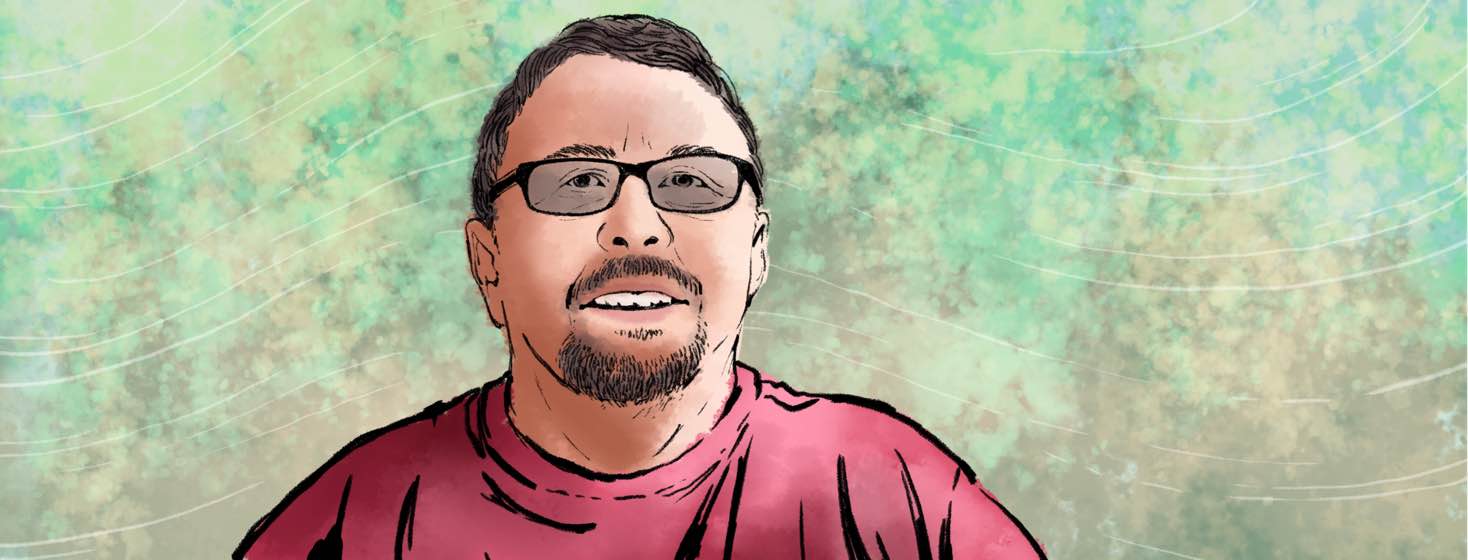Phil's Diagnosis Story and the Importance of Family Support
We're highlighting people in the bladder cancer community and sharing some of their experiences. I talked to Phil who hails from New York about what it was like to be diagnosed in the middle of the COVID-19 pandemic and how his family and friends supported him despite the social distancing restrictions in place. Read on to learn about his journey!
New York City in May 2020
I was diagnosed in May of 2020. New York City had just gone through the first wave of the pandemic. The streets were empty. Not since the morning of September 11th had the city felt like this. It was otherworldly, dreamlike, but not in a good way. Instead of the din of crowds and traffic, there were only sirens. The usual frustrations of making appointments and getting records were being compounded by systems and people scrambling to adjust to remote working.
Going to appointments alone during COVID
The anxiety of going to appointments was compounded because I was by myself. Due to COVID-19 restrictions, no one could accompany me. If it's treated early, I knew that bladder cancer statistics show favorable survivability. But if it gets into the bladder muscle or if spreads beyond, the odds become scarier.
"This can't be real. My bad heart was supposed to kill me, not cancer."
Isolating bladder cancer diagnosis experience
My brother had just spent 7 weeks on and off a ventilator in the intensive care unit of the same huge, noisy, and chaotic hospital. Everyone in masks added to the odd feeling that this had to be a dream.
"This can't be happening, especially right now." I needed to wake up from this surreal nightmare. But there was no waking up. I was told my bladder had to come out - and soon.
My family support
In terms of support, I was and continue to be extremely lucky. My wife and my 2 grown kids along with my son's fiancée were fantastic. Because of how quickly this all came about and because of travel restrictions, the kids had to quarantine after traveling from different parts of the country to be here for the surgery. They rented an Airbnb nearby so that they could quarantine but still be close and provide support.
My wife, even though she could not accompany me to office visits, was there every step of the way. She participated in the video chats with doctors as I gathered opinions and interviewed prospective surgeons.
My hospital stay was lonely at times
During my hospital stay, I was allowed only one visitor per day for up to four hours. This was hard on everyone. It felt pretty lonely at times, but I was able to stay in touch with everyone by text, phone, and through a great website called CaringBridge. It enabled my wife to easily give updates to friends and family and for them to post messages of support for me.
Making progress during recovery
At home in the weeks following surgery, I needed a lot of help. My wound needed cleaning, bandages needed changing, and every four hours around the clock my catheter and neobladder needed to be flushed. My wife was incredible both for the physical needs and the emotional support that I needed to adjust to my new life.
The healing and adjustment process after neobladder surgery is daunting. It is a process measured in weeks and months, not days. Patience is not my strong suit. There were frustrations and complications early on, but with the help of my family, I got through them to realize that progress was being made.
Coping with isolation
Lockdown was and continues to be isolating. I've been through a very tough time and all I want is to be able to see and be with friends and family. Zoom is great, but let's face it, it is a poor substitute for the real thing. I love to travel, and I feared that after RC surgery that it would be too difficult.
Now I know that I will be able to do everything that I used to do. Planning trips for the not-too-distant future when the world gets back to normal is a great motivation for me. I still have a lot of places to go and things I want to do.
Read Part 2 of Phil's interview to read more about his treatment experience.

Join the conversation